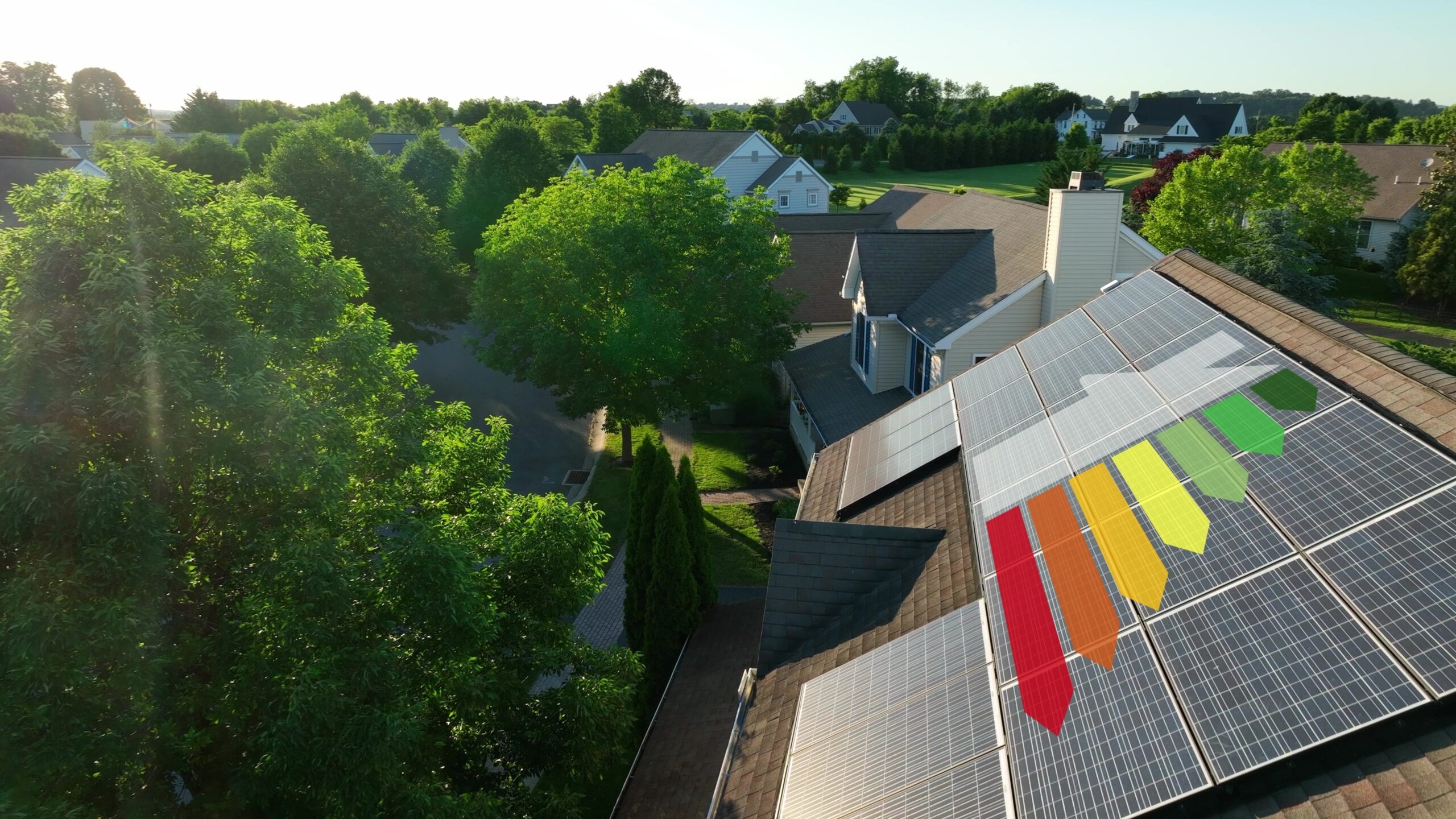As the days grow shorter and temperatures drop, many homeowners begin to question how well their solar panels will work during winter.
For homeowners thinking about investing in solar it’s also a question that’s at the top of their mind.
It’s a valid question, given that winter brings fewer daylight hours and often cloudy skies and seems to last for a long time in the UK.
In this guide, we’ll explore the ins and outs of generating solar energy in winter, covering misconceptions, myths and giving you insights into how solar works when the sun seems scarce.
Understanding Solar Energy in Winter
How Solar Panels Function
Solar panels work by converting sunlight into electricity through photovoltaic (PV) cells. These solar cells absorb photons from sunlight, creating an electric field across the layers of silicon within the panel.
This process generates direct current (DC) electricity, which is then converted into alternating current (AC) electricity by an inverter, making it usable in your home.
Did you know…
solar panels are not dependent on heat; they rely solely on light.
That’s worth repeating !
solar panels are not dependent on heat; they rely solely on light.
It’s one of the biggest misconceptions, that the sun needs to heat the panels up for them to work.
It does mean though that even in winter, when temperatures are lower, solar panels can still generate electricity as long as there is daylight.
In fact, solar panels can be more efficient in cooler temperatures, as excessive heat can reduce their efficiency.
Therefore, the question “does solar work in winter?” can be answered with a yes. Panels continue to work, using the available sunlight to produce energy even during the colder months.
Impact of Shorter Days
Shorter days are more of an issue. Shorter days in winter do impact the amount of solar energy that can be captured. With fewer daylight hours, solar panels have less time to absorb sunlight.
However, the intensity of the sunlight, rather than the duration, significantly influences energy production.
Even with reduced daylight hours, panels can still function efficiently if the sun is shining brightly. Additionally, the angle of the sun is different in winter, which can affect the amount of energy captured.
While energy production might decrease compared to summer, modern solar systems are designed to handle this. If you have battery storage to store excess energy produced during sunnier days, it can provide power when direct sunlight is limited.
Cloudy versus Sunny Days
Cloudy days can also affect the performance of solar panels in winter, but not as much as you think. Solar panels continue to generate electricity even on overcast days, although at a reduced rate compared to sunny days.
On a cloudy day, solar panels can produce around 10 to 25% of their typical energy output. This might seem like a big drop, but solar panel technology has advanced to deal with this.
Modern panels maximise energy capture. Even when the sun does make an appearance on a bright winter day, solar panels can operate at peak efficiency. This is due to the cooler temperatures, which help them run more effectively than in the hot summer months.
Efficiency of Solar Panels in Cold Weather
Cold Climate Advantages
Cold climates can surprisingly offer advantages for solar panel efficiency. Solar panels operate more efficiently in cooler conditions. Excessive heat can reduce the voltage and overall output of solar panels, whereas colder environments maintain optimal efficiency levels.
This is because the electrical components within the panels experience less thermal stress. Additionally, snow can act as a reflector, increasing the amount of sunlight that reaches the panels.
When the snow melts off the panels, it can also help keep them clean, ensuring they capture sunlight more effectively. While winter presents challenges such as shorter days and potential cloud cover, the benefits of cooler temperatures cannot be overlooked.
Common Winter Challenges
Despite the advantages that cold weather can present, winter does come with its own set of challenges for solar panels.
One concern is snow accumulation. Heavy snow can temporarily cover panels, blocking sunlight and reducing their ability to generate electricity.
This issue can be mitigated by ensuring panels are installed at an angle that allows snow to slide off naturally. Another challenge is the potential for ice and frost, which can similarly obstruct sunlight access.
Additionally, debris from winter storms may accumulate, necessitating regular maintenance to ensure optimal solar cell performance.
Does Solar Work in Winter?
Yes!. Despite the challenges posed by shorter days, cloud cover, and snow, solar panels are designed to adapt to varying weather conditions well.
Cold temperatures enhance the efficiency of panels so they work better in cooler weather compared to summer. Moreover, advancements in solar technology ensure that panels capture maximum energy even in poor conditions.
Maximising Solar Output During Winter
Strategic Panel Placement
The strategic placement of solar panels helps maximise the output during winter as the sun is lower in the sky. The position and angle of panels affect their ability to capture sunlight. Also, placing panels in areas that are less likely to be shaded by trees or buildings, especially during the critical midday hours, is important.
Ensuring panels are free from obstructions like snow or debris is also vital. Regular maintenance, such as clearing snow accumulation, can prevent blockages that reduce efficiency.
Regular Maintenance Tips
Regular maintenance helps solar panels perform optimally during winter. Snow can be gently brushed off using a soft broom or a roof rake designed for solar panels.
Furthermore, monitoring the energy output through your solar system’s monitoring tools can alert you to any potential problems early.
Energy Storage Solutions
With shorter daylight hours, storing excess energy generated on sunnier days becomes crucial. Battery storage allows you to capture and save surplus electricity produced by your solar panels, ensuring a reliable power supply even when sunlight is scarce.
Modern batteries are designed to efficiently store energy and release it as needed, providing a buffer against the unpredictability of winter weather.
Additionally, these systems can help reduce reliance on the national grid, offering both energy independence and potential cost savings.
Financial Considerations for Winter Solar
Cost-Benefit Analysis
You should weigh up the costs when considering solar panel installation, especially for winter use. The investment in solar technology can be high especially if you’re going for a battery storage.
However, the long-term benefits often outweigh these upfront costs. In winter, while energy production may decrease, the savings on electricity bills continue year-round, so you recoup the your investment.
Long-Term Savings Potential
The long-term savings of solar panels makes them an attractive investment, even when considering the winter months. Although winter might bring reduced solar output, the overall savings on electricity bills add up over the lifespan of the system.
Factoring in potential income from selling excess energy back to the grid, the financial return becomes even more favourable.
Once the initial investment is recuperated, you will benefit from virtually free electricity.
Does Solar Work in Winter?
Despite common misconceptions, solar panels continue to generate electricity even in cold, snowy conditions. Homeowners in diverse climates, from the UK to parts of North America and Northern Europe, report positive outcomes with their solar systems throughout winter.
While there may be a dip in energy production due to shorter daylight hours and cloud cover, solar panels are still effective.



